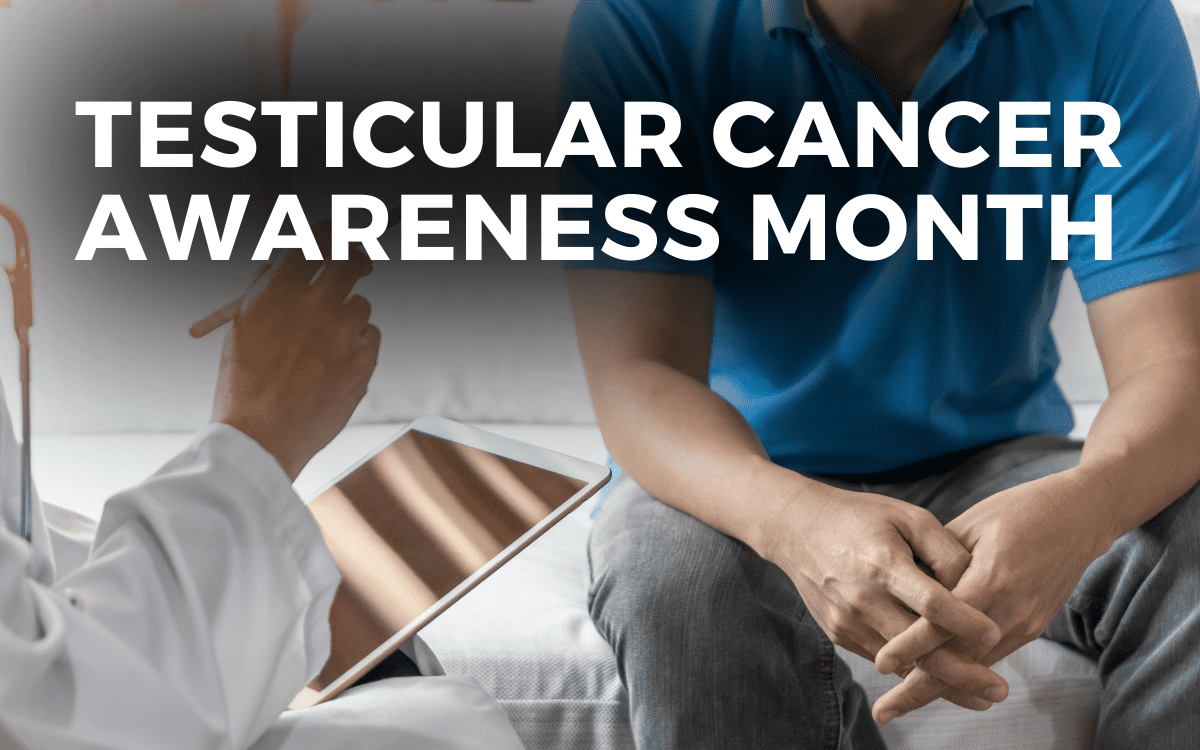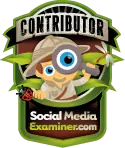Testicular cancer awareness month is a time to bring attention and support to those affected by this disease. It’s also an opportunity to spread knowledge about testicle health, dispel common myths, and learn how we can all help raise awareness. From learning the history of the holiday to understanding tips for self-examining, let’s explore together what it means to celebrate Testicular Cancer Awareness Month in meaningful ways.

What is Testicular Cancer Awareness Month?
April is the designated month for raising consciousness about testicular cancer and emphasizing early diagnosis. In 1996, Testicular Cancer Canada – a non-profit focused on creating an understanding of the disease and aiding those who have it – set up April as Testicular Cancer Awareness Month.
History of Testicular Cancer Awareness Month
Since its inception, Testicular Cancer Awareness Month has made significant strides, with more organizations hopping on board each year. This includes both national and international organizations such as Movember Foundation, Stand Up To Cancer, Prostate Cancer UK, American Urological Association Foundation (AUAF), and many others. These entities have furthered the message of early detection through campaigns like “Check Yourself” or “Be Bold Get Checked,” which seek to enlighten people on the symptoms of testicular cancer while encouraging them to consult a doctor if they notice any worrisome signs or symptoms.
How to Celebrate Testicular Cancer Awareness Month
Celebrating Testicular Cancer Awareness Month is an important way to spread knowledge about the disease and its symptoms, as well as show your solidarity with those affected. There are many ways to get involved and make a difference during Testicular Cancer Awareness Month – from sharing information on social media to having conversations with friends and family about early detection and prevention. Here are a few ideas on how to celebrate Testicular Cancer Awareness Month:
- Make a donation to Testicular Cancer research or other cancer-related charities.
- Attend local Testicular Cancer awareness walks and fundraisers, if available in your area.
- Educate yourself about Testicular Cancer and its symptoms, as well as risk factors.
- Share Testicular Cancer information with friends, family, and colleagues to help spread awareness. Share articles, infographics, and other resources about Testicular Cancer so more people can become aware of the signs and symptoms of the disease.
- Wear Testicular Cancer ribbons or pins to show your support for the cause.
- Encourage other men in your life to get regular Testicular Cancer screenings. Testicular cancer is most treatable when caught early.
- Host a Testicular Cancer fundraiser or information night at your home, office building, school, etc. This can be anything from organizing a 5k walk or run to hosting a trivia night with proceeds going towards Testicular Cancer research organizations.
- Look into Testicular Cancer support groups in your area and lend an ear to those affected by it.
- Advocate for Testicular Cancer awareness in your community. Reach out to local businesses and organizations and ask if they’d be willing to help spread the message.
- Follow Testicular Cancer blogs, podcasts, and social media accounts to stay informed.
- Use your social media platforms to share information about testicular cancer, including facts, resources, stories from survivors, etc.
No matter how you choose to celebrate Testicular Cancer Awareness Month, it’s important to remember why we’re doing this. Testicular cancer is a serious disease that takes the lives of countless men every year, but early detection and proper treatment can give them an opportunity to beat the odds and stay healthy. By coming together during Testicular Cancer Awareness Month, we can make a difference and bring hope to those affected by the disease.
Hashtags to Use During Testicular Cancer Awareness Month
By utilizing popular and relevant hashtags tags when sharing social media posts related to testicular cancer, you can reach a larger audience and promote the message further. Some popular hashtags used during this month include:
- #testicularcancerawareness
- #testicularcancer
- #checkyourself
- #cancerawareness
By using these hashtags in your posts, you’ll increase the exposure and reach of your content.
For the complete list of holidays to celebrate on social media in April, visit angiegensler.com/april-holidays
Other Holidays Related to Testicular Cancer Awareness Month
International Men’s Day is an annual event celebrated on November 19th that aims to recognize and celebrate the positive contributions of men around the world. This day serves to spotlight certain issues that affect males, such as psychological well-being, substance misuse, and aggression toward men. Small business owners and entrepreneurs can use International Men’s Day as an opportunity to leverage social media to raise awareness about men’s issues, such as mental health, substance abuse, and violence against men.
World AIDS Day is another important holiday that takes place every December 1st. On World AIDS Day, we honor those living with HIV/AIDS and commemorate the lives of those who have passed away from AIDS-related illnesses while also spreading awareness about prevention. Social media can be used as a powerful tool during World AIDS Day by sharing stories from people affected by HIV/AIDS or simply posting messages reminding others how they can protect themselves from getting infected with HIV.
In September, National Prostate Health Month encourages men over 50 to get screened for prostate cancer – a prevalent type of cancer among American males – as early detection is key. Small businesses can help spread awareness about this issue by creating posts on social media platforms like Facebook or Instagram highlighting facts related to prostate health while also emphasizing why it’s important for older men especially get tested regularly for early detection if necessary.
Finally, Movember happens each year during November when men are encouraged to grow mustaches in order to bring attention to male health issues such as prostate cancer research as well as promote better mental well-being amongst all genders alike. By using hashtags like #movember, small businesses can join conversations online surrounding these topics while simultaneously helping promote campaigns related to raising funds for organizations dedicated to finding cures for various diseases affecting both women and men across the globe.
For more holidays, download our free calendar with over 1,000 fun and unique holidays to celebrate this year. Head to angiegensler.com/holiday-calendar to grab your free copy!
Testicular Cancer Awareness Month Dates
| Year | Date | Day |
|---|---|---|
| 2024 | April 1 | Monday |
| 2025 | April 1 | Tuesday |
| 2026 | April 1 | Wednesday |
| 2027 | April 1 | Thursday |
| 2028 | April 1 | Saturday |
| 2029 | April 1 | Sunday |
What is Testicular Cancer?
Testicular cancer is a type of cancer that affects the testicles, which are part of the male reproductive system. Genetic predisposition, lifestyle choices, and environmental exposures may all contribute to the development of testicular cancer. Indicators of testicular cancer may comprise a lump or enlargement in the gonads, ache or uneasiness in the inferior abdomen/groin region, and changes to the shape or size of one or both testicles.
A symptom often noticed is a lump that differs from the tissue around it, found in either of the two testicles. Other symptoms may include painless enlargement/swelling of one or both testes; a dull ache in the lower abdomen/groin; feeling of heavy sensation within the scrotum; a collection of fluid within the scrotum; backache; and shortness of breath.
Testicular cancer is the most frequent form of malignancy among males aged 15-35, occurring in 1 out of every 250 individuals; those with a family history, an undescended testicle, or prior trauma are at higher risk, but it can be treated successfully if detected early.
Regular self-examinations are recommended for all men over 18 to detect any changes that could indicate a problem. Early diagnosis can lead to successful treatment with surgery and/or chemotherapy, depending on the severity of disease progression.
Diagnosis and Treatment for Testicular Cancer
Diagnosis typically involves a physical exam to check for lumps/swelling as well as blood tests to measure levels of hormones produced by tumors (alpha-fetoprotein). Imaging tests such as ultrasound scans may also be used to look at the structure inside scrotal sacs more closely. Treatment usually involves surgery to remove the affected testicle followed by radiation therapy and chemotherapy if needed to reduce the spread of cancer cells.
Testicular cancer is a severe medical issue that impacts males of all ages. With April being Testicular Cancer Awareness Month, it’s important to learn how you can support those affected by this disease and the resources available for them.
How Can I Support Those Affected by Testicular Cancer?
Demonstrating solidarity with those battling testicular cancer is achievable in numerous ways. Contributing financially to charities devoted to aiding those afflicted with testicular cancer is an effective way of expressing support. These donations help fund research and provide financial assistance for treatments and other costs associated with fighting this form of cancer. Additionally, lending your time and effort to local events that promote testicular cancer awareness is a great way to get involved. Whether it’s helping out at a walk or run, organizing an event, or simply attending an event in order to raise awareness about testicular cancer – every bit helps.
For those impacted by testicular cancer, there are several resources available such as online communities where people can communicate and exchange experiences, in addition to websites that provide information on treatment options and support groups.
There are also numerous charities dedicated solely to helping men who have been diagnosed with this form of cancer; these charities often offer grants or scholarships so that individuals can access necessary medical care without having to worry about finances getting in the way.
Three organizations devoted to helping those with testicular cancer – The Testicular Cancer Society, the National Testicular Cancer Coalition, and Livestrong’s Testicular Cancer Initiative – work towards a shared goal of finding a cure and providing support. Despite their different mission statements, these organizations are united in striving towards one common goal: finding a cure for this type of malignancy while also providing much-needed assistance to patients fighting it each day.
It is important to remember that there are many ways to show support for those affected by testicular cancer, and it is our responsibility as members of the community to do what we can.
What Are Some Tips For Self Examining For Signs Of Testicular Cancer?
When To Perform a Self-Exam for Signs of Testicular Cancer:
It is recommended that men perform self-exams monthly, preferably after taking a warm bath or shower when the scrotum is relaxed. This allows you to get familiar with your body and what’s normal for you so any changes can be detected quickly.
How To Perform a Self Exam for Signs of Testicular Cancer:
Begin by standing in front of a mirror and examining both testicles separately. Place one hand behind your head and use the other to check each testicle gently, feeling for any lumps or bumps on either side. Gently roll each testicle between your thumb and fingers, comparing the size and shape of one side to the other for any discrepancies. If anything feels abnormal, it’s important to contact your doctor right away as this could be an indication of cancerous cells developing in the area.
It is important to be aware of the warning signs associated with testicular cancer and to perform regular self exams in order to detect any abnormalities.
What Are Some Common Myths About Testicle Health?
Misconceptions About Testicle Health:
There are many misconceptions about testicle health that can lead to a lack of awareness and education on the subject. Falsehoods persist that only males should be concerned about testicular cancer when in fact, it can affect any individual with gonads. Another myth is that if you have one healthy testicle, it will be enough to maintain fertility, which isn’t true; both are necessary for optimal reproductive health. Additionally, some people mistakenly believe that wearing tight underwear or pants increases your risk of developing testicular cancer – this isn’t true either.
Unfortunately, these myths can have serious consequences for those who don’t know any better. Without proper knowledge about the risks and signs associated with testicular cancer, individuals may not seek medical attention as quickly as they should, leading to a greater chance of advanced stages before diagnosis. Additionally, there may be stigma surrounding self-examining due to embarrassment or fear caused by misinformation on the topic. It’s important for everyone with testicles (or those close to them) to understand the facts so they can stay informed and safe.
It is essential to be cognizant of fallacies concerning male reproductive organ health so as to guarantee that individuals are caring for their physical well-being. By spreading awareness, we can help reduce the stigma and misinformation surrounding this topic and encourage others to prioritize their own testicular health.
How Can I Spread Awareness About Testicle Health?
There are many ways to spread awareness about testicle health. Talking about testicle health with people you know can be a great way to start the dialogue and motivate others to join in raising awareness. Posting educational content on social media platforms can be a great way to reach more people with the message of testicle health. Attending local events related to raising awareness of this issue is another effective way of getting people informed and engaged on the topic. Participating in campaigns dedicated towards increasing knowledge around this subject, like Movember’s “Know Your Nuts” campaign, can be an impactful contribution that helps create real change for those affected by testicular cancer or other forms of male reproductive cancers.
The benefits of spreading awareness about testicle health are far-reaching, from reducing stigma surrounding this topic to increasing knowledge on how to detect signs early before it progresses too far along in its development cycle. This could potentially save lives as early detection often leads to successful treatment outcomes if caught soon enough. Additionally, educating men on proper self-exam techniques will help ensure they know what warning signs should prompt them into seeking medical attention immediately if needed.
Promoting men’s physical and mental well-being through increased knowledge of testicular health is essential.
Conclusion
Testicular Cancer Awareness Month is an important event that reminds us to stay informed about our testicle health. By educating ourselves and regularly checking for signs of the disease, we can help raise awareness of testicular cancer and support those affected.
Let’s join together in raising awareness for Testicular Cancer Awareness Month by sharing educational information and resources on social media. Let us spread the word about early detection, diagnosis, and treatment options available to those affected by this disease.
{“@context”:”https://schema.org”,”@type”:”FAQPage”,”mainEntity”:[{“@type”:”Question”,”name”:”Is there a testicular cancer awareness month?”,”acceptedAnswer”:{“@type”:”Answer”,”text”:”Yes, there is a Testicular Cancer Awareness Month. It takes place each year in April and was established to raise awareness about the importance of early detection for testicular cancer. During Testicular Cancer Awareness Month, organizations join forces to provide educational resources and campaigns to help prevent and detect the disease. This includes events such as fundraisers, health fairs, educational campaigns and more. Raising recognition of testicular cancer, especially amongst young males, is essential for early diagnosis and prevention.
“}},{“@type”:”Question”,”name”:”What are Hashtags to Use During Testicular Cancer Awareness Month?”,”acceptedAnswer”:{“@type”:”Answer”,”text”:”By utilizing popular and relevant hashtags tags when sharing social media posts related to testicular cancer, you can reach a larger audience and promote the message further. Some popular hashtags used during this month include: #testicularcancerawareness #testicularcancer #checkyourself #cancerawareness By using these hashtags in your posts, you’ll increase the exposure and reach of your content.
“}},{“@type”:”Question”,”name”:”When is testicular awareness month?”,”acceptedAnswer”:{“@type”:”Answer”,”text”:”Testicular Awareness Month is celebrated every April. The purpose of this month is to raise awareness about the importance of regular self-examinations and early detection for testicular cancer, which can be a life threatening condition if not treated in time. It also encourages men to take responsibility for their own health and well being by staying informed on the signs and symptoms of testicular cancer as well as other male reproductive health issues. This month is a reminder to men of the need for regular assessments and testing, which can help identify any potential problems in their reproductive health early on.
“}},{“@type”:”Question”,”name”:”What are some known facts regarding testicular cancer?”,”acceptedAnswer”:{“@type”:”Answer”,”text”:”Testicular cancer is the most frequent form of malignancy among males aged 15-35, occurring in 1 out of every 250 individuals; those with a family history, an undescended testicle or prior trauma are at higher risk but it can be treated successfully if detected early. It affects 1 in 250 males, and is highly treatable if caught early. Risk elements can include a familial history of testicular cancer, an undescended ballock, or past injury to the testicles. Symptoms of testicular cancer may include a lump, pain or discomfort in the scrotum area, and/or enlargement of one or both testicles. Regular self-examinations are recommended for all men over 18 to detect any changes that could indicate a problem. Early diagnosis can lead to successful treatment with surgery and/or chemotherapy depending on severity of disease progression.
“}}]}














